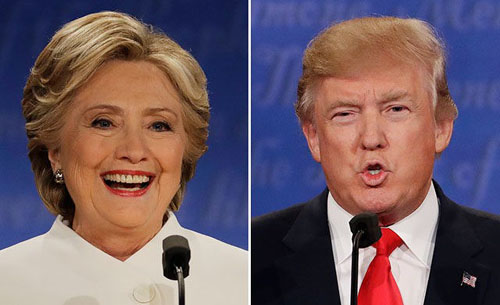by WorldTribune Staff, May 21, 2020
The Office of the Director of National Intelligence (ODNI) has vowed there will be “uniformity on both sides” when it comes to intelligence briefings to 2020 presidential candidates.
Such was not the case in the 2016 election, Washington Times reporter Rowan Scarborough noted on May 19.

“In 2016, with Russian intelligence hacking Democratic Party computers, U.S. intelligence provided the Hillary Clinton presidential campaign with what is called a ‘defensive briefing,’ but it did not give the same to the Trump campaign,” Scarborough wrote. “In fact, the FBI decided to use a general threat overview session on Aug. 17, 2016, as an opportunity to spy on then-campaign adviser Michael Flynn.”
During the 2016 election, intelligence threat briefings for political campaigns and officer holders were conducted by the ODNI, the FBI and the Department of Homeland Security.
Acting Director of National Intelligence Richard Grenell wants to “streamline” the briefings for 2020, an intelligence official told The Washington Times.
Grenell has put the director of the National Counterintelligence and Security Center (NCSC), Bill Evanina, in charge of the briefings. Evanina will lead the presidential briefings and bring in the FBI and the DHS as needed, Scarborough’s report said, citing an ODNI official.
“This insures you have uniformity for both sides,” the ODNI official told The Times. “It puts one person in charge … He could coordinate if he wants.”
An ODNI statement said: “This change represents an important improvement and simplification to the threat notification process. The IC [intelligence community] will continue to work in partnership with FBI and DHS to identify and integrate threat information, and Evanina and the elections team will act swiftly to deliver the timely and thorough assessments to those affected by potential malicious influence.”
Scarborough noted that “One 2016 development is clear: the Clinton camp received a full-throated intelligence briefing on Russia and the Trump team did not.”
Then-FBI Deputy Director Andrew McCabe and counterintelligence chief Bill Priestap concluded they should not tell the Trump campaign what the Russians were allegedly up to because they were investigating whether the Republicans were involved, according to a report by Department of Justice Inspector General Michael E. Horowitz.
“Priestap stated that he considered whether the FBI should conduct defensive briefings for the Trump campaign but ultimately decided that providing such briefings created the risk that ‘if someone on the campaign was engaged with the Russians, he/she would very likely change his/her tactics and/or otherwise seek to cover-up his/her activities, thereby preventing us from finding the truth,’ ” the report said.
The report also said: “McCabe said that he did not consider a defensive briefing as an alternative to opening a counterintelligence case … The FBI did not know if any member of the campaign was coordinating with Russia and that the FBI did not brief people who ‘could potentially be the subjects that you are investigating or looking for.’ ”
Intelligence Brief __________ Replace The Media
